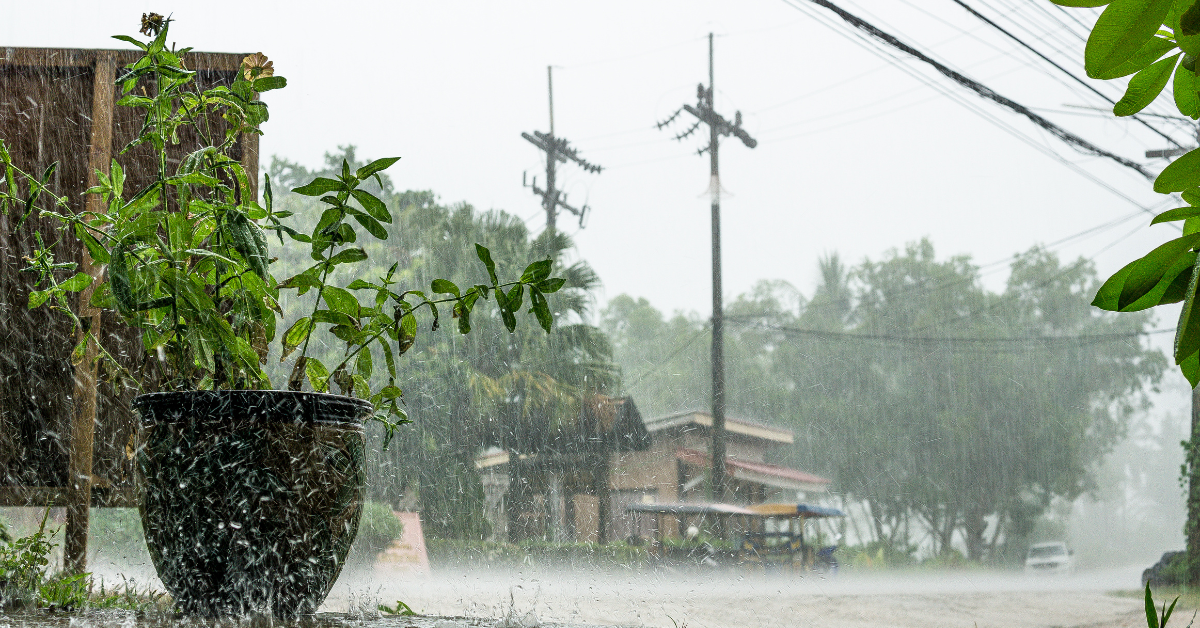The Link between Climate Change and Extreme Weather

Evidence suggests a causal link between climate change and extreme weather events. Vast bodies of research confirm what scientists have suspected for decades, with our problems only set to get worse if we do not cap earth’s rising temperature.
Many feel powerless to stop climate change's effects. However, if we all do our part, we can reduce the damage and destruction. One of the best climate change solutions is reducing reliance on fossil fuels.
Take the SmartSolar.org Quiz to Find Out If Solar Panel Installation is Right for You
The Link Between Climate Change and Extreme Weather
If you've noticed a lot of reports about extreme weather in the news lately, you're not alone. Storms, heat waves, floods, droughts, and more are causing damage to homes and habitations at a drastic rate. Scientists believe that climate change is to blame.
While experts have linked these causes for years, predicting the weather is complicated. However, as the evidence piles up, the case becomes irrefutable.
Attribution studies — the discipline that looks at the link between extreme weather and climate change effects —are crucial work. When the public has better information, they can make the right choices.
What Are Extreme Weather Events?
Extreme weather events include tornadoes, hurricanes, droughts, floods, and other natural disasters. While these events are part and parcel of life on earth, their rise in recent years has been linked to human activities.
A few main categories of extreme weather events are connected to climate change. They are:
Drought
Studies from Nasa and the Centre for Climate Change and Energy Research have found that the rise in drought is linked to climate change.
Extreme Heat
Since the industrial revolution, world temperatures have risen, due to peaks in temperature from human activity throughout the world.
Extreme Rain
Extreme rainfall is a result of human activity, creating changes in the atmosphere that correlate with rainclouds and rainfall, even during seasons that should not experience massive rainfall.
Storms and Hurricanes
Rising sea levels increase the likelihood of tropical storms, which increase the likelihood of floods.
More wildfires, longer droughts, excessive rain, wilder hurricanes, and an increase in winter storms are all linked to climate change. We need to heed these warning signs and make changes before it's too late for the planet.
Take the SmartSolar.org Quiz to Find Out If Solar Panel Installation is Right for You
How Long Has It Been Known About Climate Change Affecting Extreme Weather?
Experts have been warning us for years about the consequences of climate change. In 2014, the Intergovernmental Panel on Climate Change Fifth Assessment Report suggested these trends have been observed since about 1950.
Evidence suggests that climate change is causing rising sea levels, temperatures, and rainfall. The combination of these effects has been attributed to extreme events.
The Bulletin of the American Meteorological Society tracks and publishes annual reports on these issues. It presents peer-reviewed research and studies showing climate change effects worldwide. They have linked climate change with extreme weather for over a decade.
Increases in Intensity
It's not just the increase in events that should cause concern. Climate change is also driving the intensity of these events. The Centre for Climate and Energy Solutions National Climate Assessment report suggests that more extreme weather events are being observed across the United States.
The report states that climate change is causing new and increased risks to American citizens. Some of the problems it warns about are infrastructure damage, death, property loss, and economic damage.
One of the main themes of the last report is that we need to take action as soon as possible. That means businesses and citizens need to respond to this accelerating threat. Reducing our reliance on fossil fuels is essential.
The US government incentivizes citizens to do this with federal solar tax credit incentives. These programs can help citizens take action on climate change effects.
Take the SmartSolar.org Quiz to Find Out If Solar Panel Installation is Right for You
What Can We Do About Extreme Weather Events?
We are all vulnerable to extreme weather events. Floods, hurricanes, storms, droughts, and heat waves can cause destruction and loss of life. However, if we make sensible changes, we can reduce global warming and the frequency of these events.
One of the best steps you can take is to install solar panels. They help us reduce our reliance on fossil fuels that burn carbon dioxides into the atmosphere.
Find the best solar companies near you. You can then offset the cost of solar panels through the federal solar tax credit scheme.
Final Thoughts
It's impossible to escape the news about extreme weather events worldwide. If it seems they are on the rise, it's because they are.
Unfortunately, human activity is behind the growth of extreme weather events. Many of these fatal situations are avoidable if we change our behavior. Installing solar panels and other renewable energy sources reduces our reliance on energy.
Take the SmartSolar.org Quiz to Find Out If Solar Panel Installation is Right for You
For example, the number of solar power installations has grown quickly in the Greater Los Angeles area and throughout California because the cost of solar power has been going down and the state requires that 60% of its electricity come from renewable sources.
